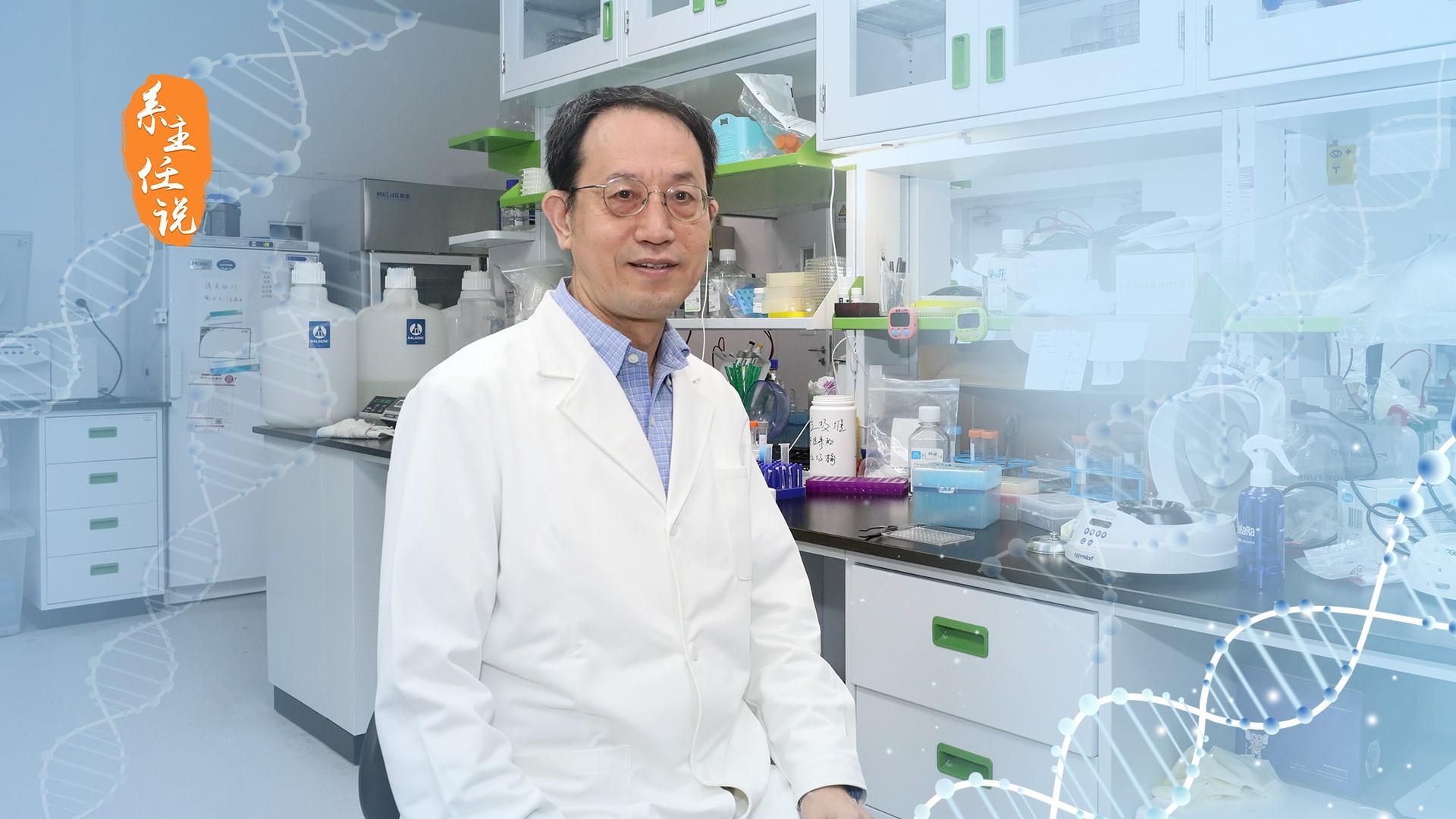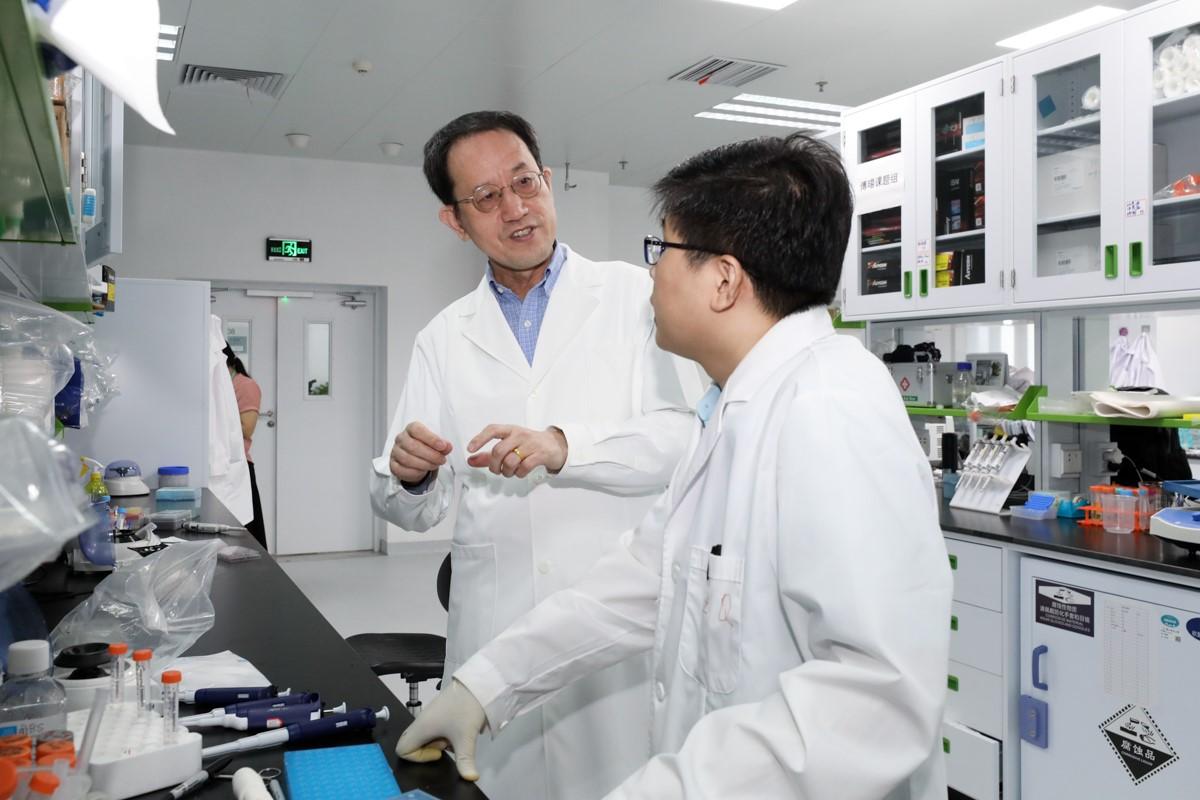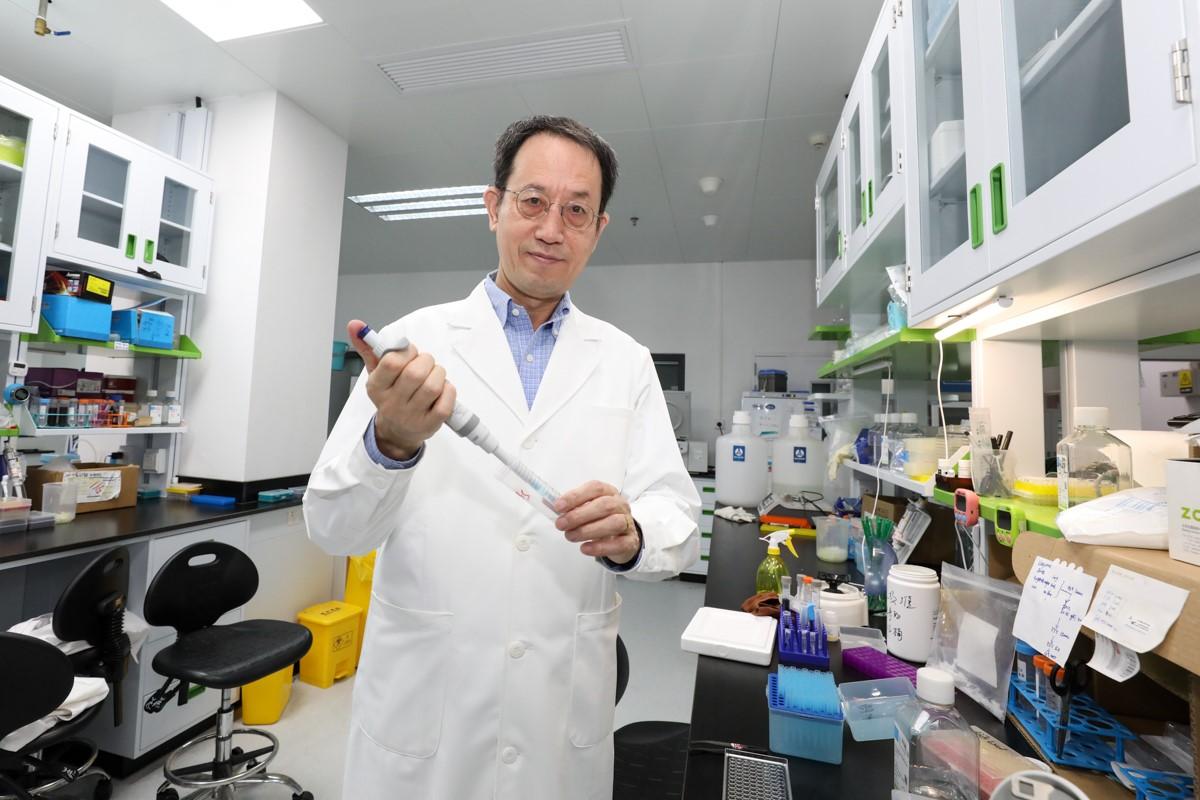As a research university, SUSTech has developed its medical disciplines and intends to advance its medical technology to support its healthcare service.
The School of Medicine has been developing quickly since its establishment. In 2020, a new department, Human Cell Biology and Genetics, was established, with Chair Professor Jintang DONG appointed as the department head.
Basic medical research is to study the core building blocks of life. In the new era and the 10th anniversary of SUSTech, he spoke to us about his plans for the Department and talent cultivation.

Joining SUSTech and contributing to higher education and cancer research
Dr. Jintang DONG has been worked in biomedical sciences and higher education for over two decades in the USA and received honors from home and abroad. China’s Ministry of Education (MoE) has recognized him as its distinguished expert.
His research focuses on the molecular pathogenesis of human cancers, particularly the driver genes in prostate cancer progression. He has published over 120 peer-reviewed papers, including several in Science and Nature series journals. He has been an associate editor or on the editorial boards of multiple international journals, including the Journal of Genetics and Genomics, and the Journal of Biological Chemistry.
Dr. Jintang DONG has spent nearly thirty years studying and working overseas. In August 2018, he returned to China and joined the School of Medicine at SUSTech as a full-time faculty member.
“For our generation at this time of our lives, a well-paid job is no longer a career priority,” said Dr. DONG. “I hope to make some contributions to higher education and cancer research in China.” He visited several universities and found that Shenzhen has an innovative and entrepreneurial atmosphere. At the same time, he is optimistic about the future of SUSTech.
Now that he has been at SUSTech for more than two years, Dr. DONG talked about his time on campus. “The current SUSTech reminds me of the Southwestern Associated University (Lianda) more than 70 years ago.”
As an alumnus of Nankai University, he was familiar with the founding history of Lianda. In 1937, Peking University, Tsinghua University, and Nankai University merged to form Changsha Temporary University in Changsha and later, National Southwestern Associated University (Lianda).
Within less than ten years of development, it became famous nationwide for producing many of China’s most prominent scientists and intellectuals, including the Nobel Prize laureates Yang Chen-Ning and Tsung-Dao Lee. The National Southwest Associated University’s graduates have played a central role in modern China. It has produced 172 Chinese Academy of Sciences or Engineering academicians.
He believed that the spirit of people, the atmosphere, and the educational philosophy of SUSTech, “Be courageous, innovative, reformative and pioneering in pursuit of truth and excellence,” made SUSTech like the National Southwestern Associated University.
“The SUSTech community is dedicated to their career and work together for the common goal. I love the atmosphere,” said Dr. DONG
Solving healthcare’s challenges on the paths
The Department of Human Cell Biology and Genetics aims to understand the fundamentals that impact healthcare with dedication and compassion.
It will focus on some life-threatening diseases, including cancer, cardiovascular and cerebrovascular diseases, genetic diseases, and metabolic diseases. The diagnosis and treatment of these diseases are all closely related to the research of cell biology and genetics.

Dr. Jintang DONG added, “Cell biology and genetics are core disciplines for modern medical sciences and biology. They are fundamental disciplines to understand the mechanisms of how diseases arise, develop, and impact people’s lives. Courses in these disciplines must be mastered by any student who wants to major in clinical medicine or biomedical sciences. “
By focusing on these areas, they are aiming to answer not only the key and core scientific questions but contributing to the wellness of society. Dr. DONG believes that the Department is responsible for the discipline construction, practice teaching, and research activities in the School of Medicine.
“The combination of cell biology and genetics has been the primary driving force for the rapid development of molecular medicine and life sciences in recent decades. It is also the upstream discipline of drug target and biomarker discovery, which can bring a revolutionary impact in health sciences.” Dr. Jintang DONG believes that the world-class research level of a medical school depends primarily on its talent pipeline and development within these two disciplines.
The Department has built several research teams and groups to study significant scientific challenges in cell biology, genetics, and genomics. It also attaches great importance in technology and knowledge transformation and application and creating disease models.
At the same time, the Department will also work closely with other departments of the School of Medicine and the School of Life Sciences to promote cross-disciplinary innovations and applications.
Simultaneously, the Department encourages thinking and action, and it has set up an academic advisory group to guide research. If one researcher made breakthroughs in one key area, the advisory group would continue to support them in continuing the study. It will encourage them to transform and apply their outcomes to solve medical problems.
Dr. DONG also stated that applying national policies to Shenzhen provides a unique environment for the Department to develop an innovative and high-quality research atmosphere.
The ten affiliated hospitals have established in-depth partnerships to answer major scientific questions in the future and conduct research on major diseases.
“Our school has partnered with ten hospitals in Shenzhen, which will strengthen our research in cell biology and genetics. With the latest policy to support Shenzhen’s development, we are confident in gaining significant insights into some major medical problems in the future,” said Dr. DONG.
To find out what you love to do and fulfill your life
As a department based on fundamental research, Dr. DONG hopes his Department could nurture future leaders of healthcare and biomedical research. Furthermore, we will consolidate the foundation course for medical students. Students from the School of Medicine will not only master professional expertise and skills but, importantly, also have outstanding humanistic qualities.
He will also focus on fundamental research to drive the high-impact progress of the Department’s talent pipeline. Jintang DONG hopes that discipline development will focus on the integration of theory and practice for undergraduate students. Such an approach will ideally lead to application-based academic researchers at the postgraduate and doctoral level. They will further consolidate the educational and scientific foundation of students within the School of Medicine, nurturing a new generation of medical leaders with the skills for the modern era.

With the focus on interdisciplinary and basic research, Jintang DONG aims to build a team of talented and dedicated educators. These instructors are not only theoretical experts; some will also be clinical specialists and authorities on disease prevention. Ideally, some of these teachers should cover multiple areas, as they will provide several perspectives to students as mentors. Developing such a cultural atmosphere within the Department of Human Cell Biology and Genetics is of the utmost importance.
“I hope that through the establishment of many open and friendly platforms, academic leaders, young and middle-aged faculty members, graduate students, and undergraduates can have an equal and in-depth idea exchange. I want to create a receptive educational atmosphere.” Jintang DONG believes that a positive learning and cultural environment is necessary for the Department of Human Cell Biology and Genetics to thrive.
“International exchanges are necessary to maintain high-level teaching and scientific research.” Jintang DONG said that he would actively encourage faculty members to participate in international exchanges and invite world-renowned scholars to visit the Department.
“Doing research requires ambition and determination.” Jintang DONG is convinced that scientific research and study requires hard work and a competitive spirit. Hands-on research skills need both talent and hard work, so students must practice and cultivate their skills in this area.
“We focus on enhancing the students’ hands-on biology lab skills,” Jintang DONG explained. Dr. DONG remembered that he had made an instrument and a reagent shortly after his laboratory’s establishment, which saved the team many research funds. This experience has much inspired him in the future academic path. He believes that hands-on skill training, combining with skills of critical thinking and self-learning, will help students succeed in the long run.
Dr. DONG believes that SUSTech’s training model is suitable for a student’s long-term development. A student could select his or her major in the second year. He suggested the students find out their life-long passions and follow them.
Jintang DONG also believes that SUSTech’s talent development model provides excellent opportunities for SUSTech students. He suggested that the SUSTech community could foster their critical thinking skills and determine their scientific path independently.
With an eye for the future, Jintang DONG is a firm adherent to the competitive spirit. He encourages students to cultivate their sporting hobbies. It helps them with their physical and mental health while engaging their ambition.
The Department of Human Cell Biology and Genetics values safety in the laboratory, medical and research ethics, moral education, and academic education for its entire community. The Academic Advisory Group will bear responsibility for the vital task by guiding research groups through their scientific research while abiding by educational and scientific ethics.
Jintang DONG said that establishing the Department of Human Cell Biology and Genetics as an entire department further consolidates the foundations of new medical education at SUSTech. It will strive to cultivate world-class medical leaders and promote significant medical findings. It will also support first-class contributions to fundamental medical science research across Shenzhen and the Greater Bay Area while enhancing medical care across China & the world.

